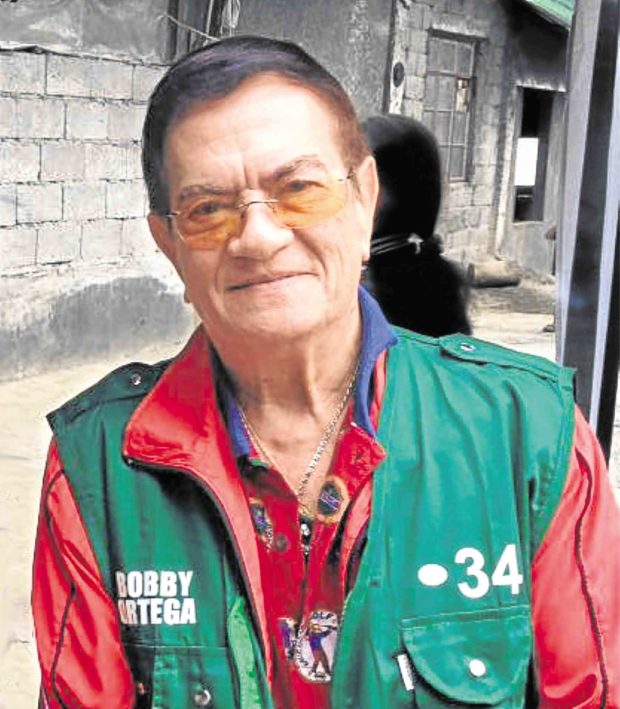‘Bungo,’ Baguio’s ex-top cop, is dead

Roberto Ortega —KARLSTON LAPNITEN
A retired Baguio City policeman, whose own “war on crime” in the 1980s preceded President Rodrigo Duterte’s campaign against drugs and criminality, died on Sunday in La Union province.
Baguio Councilor Roberto “Bobby” Ortega, the former city police chief who earned the moniker “Bungo” for his “shoot-to-kill” orders against criminals, died at Lorma Hospital in San Fernando City where he had been confined. He was 79.
Ortega retired from the police service with an equivalent military rank of colonel before he entered politics. His colorful life pursuing criminals was depicted in the 1995 movie “Markang Bungo,” where he was portrayed by the late actor Rudy Fernandez.
During the reunion of the Ortega clan on March 10 in San Fernando City, Ortega sang his favorite song, “My Way.” “He came and sang in spite of the fact that he was undergoing chemotherapy. He sang it so emotionally that we were all teary-eyed,” said his sister-in-law, former San Fernando City Mayor Mary Jane Ortega.
Ortega was undergoing the medical procedure when doctors found water in his lungs. He developed pneumonia and asked that he be confined in a La Union hospital because he wanted to be with his family.
Article continues after this advertisementHe was the fifth among 15 siblings and the second oldest among eight brothers in the influential Ortega clan of La Union.
Article continues after this advertisementA wake was held at the Ortega ancestral house in La Union on Monday and Tuesday. The councilor’s remains will be taken to the Baguio City Hall today. The body will be brought back to San Fernando City on Aug. 4.
Ortega was called “Bungo” because during police encounters “he made sure that the criminals were shot [through] their skulls,” according to Mary Jane. “He told me, ‘I never shot an innocent man and killed only during encounters with criminals.’”
Ortega served as Baguio police chief from 1985 to 1987. He was credited for the drop in the city’s crime rate during his tenure. He served as Baguio councilor from 1995 to 2004 and again from 2010 to the present. —Yolanda Sotelo